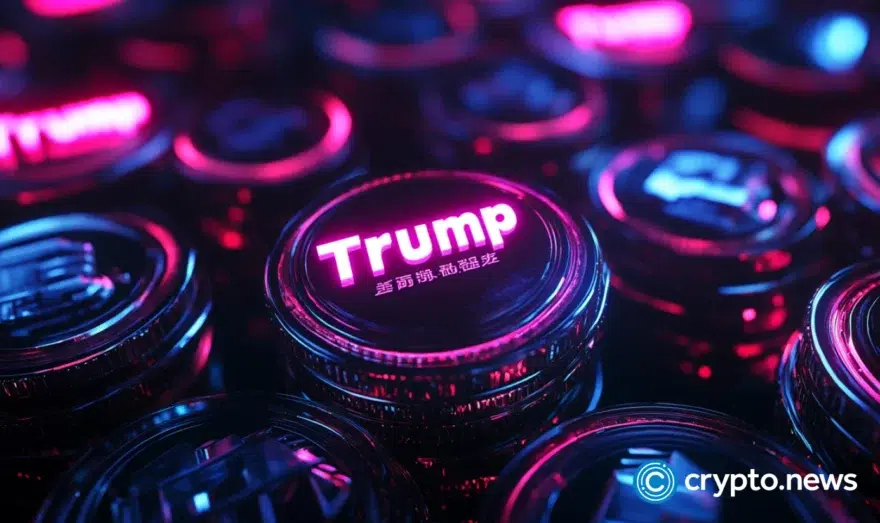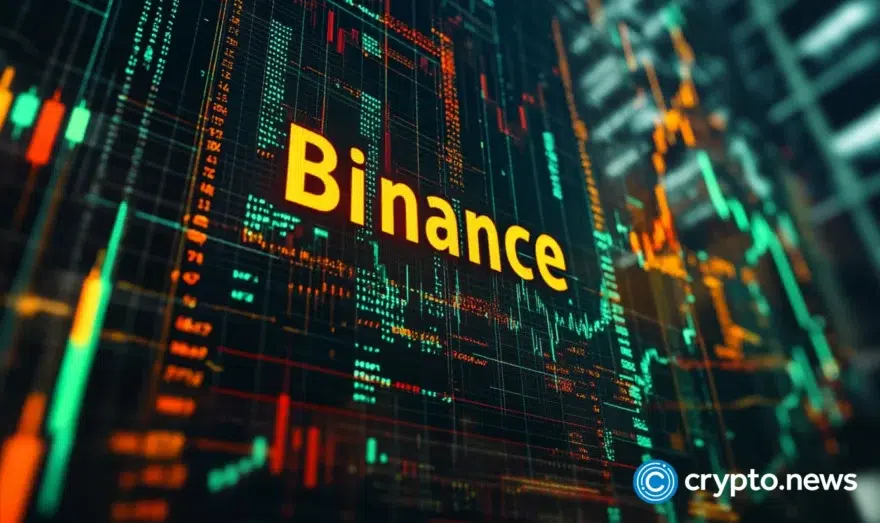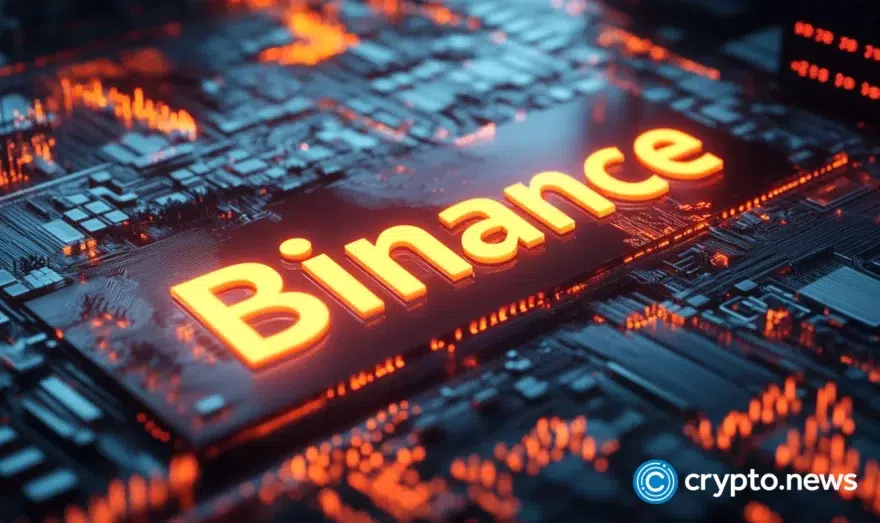Crypto.news weekly recap: crypto community supports Turkey and Syria, SEC goes after Kraken, FTX desperate for funds

The past week in crypto saw various charitable acts, regulatory developments, and market fluctuations. The cryptocurrency community demonstrated its philanthropic spirit by participating in several efforts to support the situation in Turkey and Syria. At the same time, regulatory measures continued. The U.S. SEC’s action against Kraken triggered a rift in the local crypto staking scene. Meanwhile, despite a dearth of FTX updates, creditors pursued additional financial resources. The crypto markets also underwent a retracement, causing a range of emotions within the scene.
Don’t forget to subscribe to our newsletter and get a ton of amazing content right in your inbox!
The crypto community throws its weight behind Turkey and Syria
The previous week greeted residents of southeastern Turkey and northwestern Syria with disasters in the form of a 7.8 magnitude earthquake accompanied by another 7.5 magnitude tremor shortly after, killing over 20,000 people. In response, several bodies rallied in support of the affected regions. The cryptocurrency community was not left out of the campaign.
Prominent exchanges Bitfinex, Bybit, and Gate.io revealed that they would be sending relief aids to victims in separate announcements on Feb. 6. Binance CEO Changpeng “CZ” Zhao also disclosed Binance’s intentions to join in the relief efforts. In addition, reports revealed that Bitget had donated 1 million Turkish Lira to support the affected regions.
Shortly after, renowned Turkish rockstar Haluk Levent set up three multi-signature addresses as he solicited funds from the cryptocurrency community through his charitable organization Ahbap, according to a Feb. 7 report. Donations at the time of publishing exceeded $460,000. Binance later revealed that it would be airdropping $100 to account holders confirmed to be residents of the affected areas.
Amid reports that the death toll had exceeded 20,000 people, blockchain protocol Polkadot jumped on the relief campaign, calling on its community to assist in the relief efforts by donating to the cause. Turkish residents remain some of the biggest adopters of cryptocurrencies, as citizens look to digital assets as a hedge against the collapsing Lira.
Regulatory efforts and enforcement actions persist
The dominance of global regulatory efforts and enforcement actions has become a weekly tradition in the cryptocurrency scene of late, as the numerous blowouts of last year exposed the need for proper oversight. Last week saw a move from the U.S. Securities and Exchange Commission (SEC) that has created a rift in the U.S. crypto staking scene, with industry players forecasting unfavorable effects.
SEC goes after Kraken
Reports on Feb. 8 revealed that the SEC had launched an investigation into United States-based crypto exchange Kraken. It showed that the SEC was probing the crypto firm for possible securities laws violations, disclosing that a resolution of the investigation is expected soon. Kraken is one of the oldest crypto exchanges in the U.S., having launched in 2011.
As speculations on the investigation gained steam, Coinbase CEO Brian Armstrong said he was hearing rumors that the SEC is looking to terminate crypto staking services for retail investors in the U.S. – a move he believes would be a “terrible path” for the United States. Armstrong highlighted the significance of staking in the U.S. crypto scene.
Amid these claims, Kraken was reported to have discontinued its staking services as the SEC’s investigations developed. According to Bloomberg on Feb. 8, the exchange was on the verge of agreeing to a settlement with the SEC. Statements from trusted sources disclosed that the suspension of the staking service was part of the settlement deal with the regulatory agency.
On Feb. 9, the SEC published an official press release saying that Kraken had agreed to pay a $30m fine and discontinue its staking-as-a-service program to settle the regulatory watchdog’s charges. The SEC’s charges claimed that Kraken violated federal securities laws by not registering the staking service and providing full disclosures to the general public.
Trouble for the U.S. crypto staking scene?
Though SEC Chairperson Gary Gensler took to his Twitter handle to throw more light on the situation and granted an interview on CNBC’s Squawk Box to explain the rationale behind the charges, the crypto community did not receive the development well, as many suggested that the crypto staking scene in the U.S. might very well be in jeopardy.
Gensler also put the crypto industry on notice regarding staking services, noting that crypto entities should endeavor to register their products. The SEC Chairperson implied that the regulatory watchdog would likely go after several other exchanges that fail to register their offerings, fueling more dread.
Notably, SEC Commissioner Hester Peirce, commonly referred to as “crypto mom” among crypto enthusiasts, condemned the SEC’s charges on Kraken and the forceful suspension of Kraken’s staking service, highlighting the damaging effects of the enforcement action. Peirce noted that the SEC should have enacted proper guidelines instead of terminating the product, which was aimed at providing financial support for the average American investor.
FOX News reporter Eleanor Terrett revealed in a tweet on Feb. 9 that Gensler is attempting a “midnight massacre” on the crypto industry to bring the scene under the SEC’s control. Terrett disclosed that the coming weeks would introduce a cluster of enforcement actions from the SEC, the New York Department of Financial Services, and the Office of the Comptroller of the Currency.
Amid the whole drama, the crypto markets reacted terribly, as the global market capitalization plummeted by 4.5% in the 24 hours leading to Feb. 10, with bitcoin (BTC) and ethereum (ETH) respectively declining by 3.87% and 5.5%. Coinbase stock, COIN, also collapsed by 14% in a single trading session, marking its largest decline since last July.
Asian regulators step up efforts
As the SEC pumped dread into the U.S. crypto scene with its enforcement actions, other financial watchdogs from across the globe ramped up their efforts towards providing regulatory clarity for the crypto industry last week, a trend that has remained dominant in the past few weeks. Asian regulators, in particular, remained vocal the previous week.
The Financial Services Commission (FSC) of South Korea released a guideline on Monday that would clarify the position of digital tokens in the country and how they would be regulated. The FSC guideline stipulates that digital assets that satisfy the country’s capital market act conditions would be regarded as securities and regulated appropriately. These guidelines were released ahead of the legalization of cryptocurrencies in the country.
As the local crypto industry in Hong Kong continues to expand, regulators in the region see the necessity of augmenting Hong Kong’s regulatory team. A report from Feb. 6 revealed that the Securities and Futures Commission of Hong Kong (SFC) is looking to provide greater oversight for digital assets providers by increasing the team in charge of the sector.
Furthermore, recently at the forefront of crypto adoption and regulations, Dubai disclosed plans to enact new rules that would guide how virtual asset providers in the emirate operate. The regulations set up by Dubai’s Virtual Assets Regulatory Authority (VARA) aim to mitigate investment risks, provide regulatory clarity, and properly surveil crypto ads.
Despite its aggressive approach to crypto regulation, China’s reception of blockchain technology has been relatively favorable. Reports from last week further confirmed this. The country launched the National Blockchain Technology Innovation Center – a center for blockchain research – in Beijing last week. The center is tasked with researching blockchain as the government aims to leverage the numerous promises of the technology.
Other global regulatory moves
While the Asian regulatory climate got tighter, agencies from other regions looked to bring some sanity to the scene in their respective jurisdictions. The U.K. Financial Conduct Authority (FCA) revealed plans to regulate cryptocurrency ads targeting U.K. investors. The watchdog made this known in a Feb. 6 press release directed at companies looking to make crypto promotions.
Meanwhile, besides its enforcement actions in the U.S. crypto staking scene, the U.S. SEC further disclosed that it would enforce greater scrutiny for any financial advisers and brokers engaging in digital assets investments this year. The agency noted that greater oversight has become necessary due to potential risks to investors and the integrity of the U.S. capital markets.
As the U.S. crypto scene gets more and more saturated, leading to exposures of the risks within the industry, the Federal Reserve has noticed a need to surveil state banks looking to indulge in the industry. Accordingly, it stated plans to prohibit state banks from holding crypto as principal without prior permission from the Office of the Comptroller of the Currency (OCC) and the Fed.
At the same time, the state of Mississippi demonstrated its favorable reception of bitcoin miners last week. Its senate passed a bill to legalize bitcoin mining in the state and concurrently protect miners’ rights. The “Right to Mine” bill, sponsored by Sen. Josh Harkins last month, would provide legal protection for institutions and individuals looking to set up bitcoin mining farms in Mississippi.
The crypto market sees a retracement
Amidst these ramped-up regulatory efforts, the broader cryptocurrency market faced a massive roadblock last week in the journey to recover the losses of 2022.
As the macroeconomic climate continued to get hotter with higher inflation and unstable housing markets, bitcoin and other tokens kept shedding gains picked up at the start of the year. The asset had declined by 2.44% in the 24 hours leading to Feb. 6, as it fell to $22,846.
Furthermore, analyst Benjamin Cowen further exacerbated the bearish atmosphere for bitcoin. An analysis by the veteran trader asserted that the premier crypto might be at risk of falling to values below the lows of last November triggered by the FTX collapse. Cowen claimed that BTC might be heading to $12,000 by August 2023.
In direct opposition to Cowen’s assertions, CryptoQuant author Binh Dang claimed that bitcoin might be getting ready for a bullish trend reversal. The Vietnam-based analyst cited the Triple Exponential Moving Average and the 50-100 MA crossover in his analysis, as he used both indicators to corroborate signals sent by the BTC SOPR ratio.
Regardless, the bearish sentiments grew on Feb. 9 when bitcoin fell to $22,457 – its lowest point in two weeks. Analysts warned of a further dip from the asset’s current position, and the asset closed the day at a value of $21,796. Starting the week at $23,327, BTC dipped by 6.2% to close the week at $21,862.
AI-powered assets remain unfazed
However, these bearish bearings had little effect on the price movements of AI-powered crypto projects, which posted sharp gains last week. In the 24 hours leading to Feb. 7, the market capitalization of these AI-driven assets increased by a massive 25% to hit $4.87 billion. This uptick emerged on the heels of bullish sentiments surrounding the sector. SingularityNET (AGIX) surged 225% in 7 days amid an increase in social activity.
This rally enjoyed by AI-powered assets was further supported by the growing popularity of OpenAI’s ChatGPT, as reports suggested advancements made by Microsoft and OpenAI.
FTX updates: debtors desperate for funds
The FTX saga saw less of the spotlight last week. However, updates on the bankruptcy proceedings emerged as debtors continued searching for funds.
The embattled firm’s new management, led by current CEO John Ray III, was reported last week to have sent confidential letters to PACs, politicians, and other recipients of the donations made by former CEO Sam Bankman-Fried, requesting refunds of the contributions. Ray’s team plans to file charges against individuals who fail to comply before Feb. 28.
Meanwhile, wallets linked to Alameda Research continued to engage in transactions that suggested intentions to move and leverage as much money as possible. On Monday, Arkham Intelligence highlighted the withdrawal of $2 million worth of FTX tokens (FTT) from the Alameda-affiliated address labeled “brokenfish.eth.” Nonetheless, the purpose of the withdrawal remained unknown.
Further developments surrounding FTX
To expedite investigations into FTX, the U.S. Department of Justice (DoJ) asked bankruptcy judge John Dorsey to appoint a separate third-party inspector to investigate the FTX bankruptcy case further. However, FTX lawyers have highlighted the futility of the request, stating that it is unnecessary and could stand in the way of ongoing investigations.
Amid the reports on the previously-contested Robinhood shares, a statement from last week confirmed that Robinhood is currently in talks with the U.S. DoJ as they look to take back the 55 million shares after the agency seized them from SBF. The Robinhood board of directors had voted to buy back the shares.
Following a decision by U.S. district judge Lewis Kaplan to reveal the identities of the two individuals who signed Bankman-Fried’s $250 million bail bond along with his parents, Bankman-Fried’s lawyers filed a petition last week to overturn the previous appeals made by several media houses on the matter, including Bloomberg and CoinDesk. They cited physical threats from the public as a reason to keep their identities a secret.

















